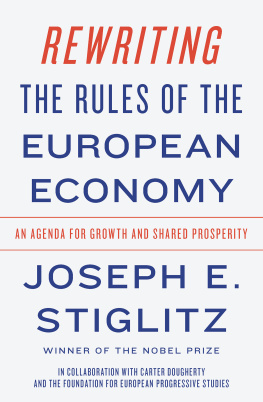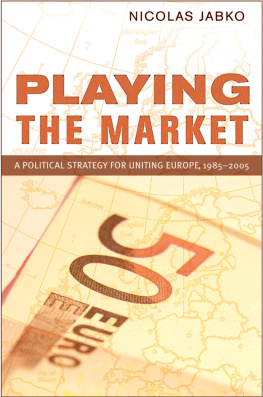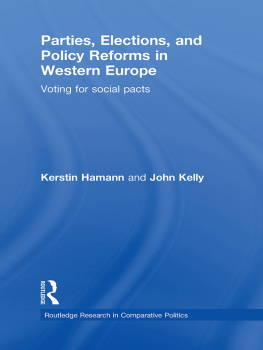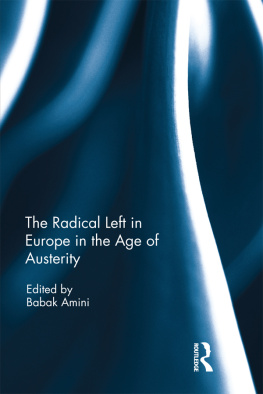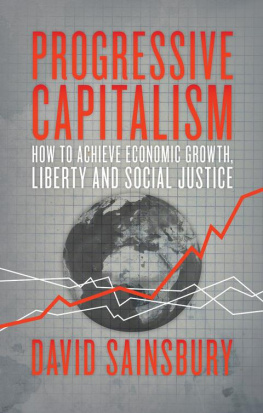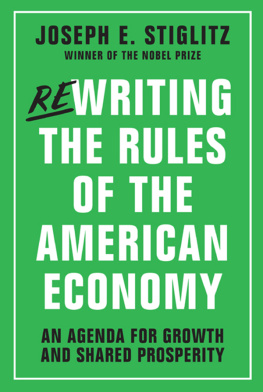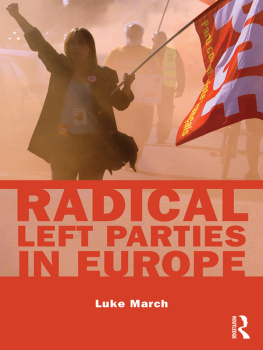
Also by Joseph E. Stiglitz
People, Power, and Profits:
Progressive Capitalism for an Age of Discontent
The Euro:
How a Common Currency Threatens the Future of Europe
Rewriting the Rules of the American Economy:
An Agenda for Growth and Shared Prosperity
The Great Divide:
Unequal Societies and What We Can Do about Them
Creating a Learning Society:
A New Approach to Growth, Development, and Social Progress
(with Bruce C. Greenwald)
The Price of Inequality:
How Todays Divided Society Endangers Our Future
Freefall:
America, Free Markets, and the Sinking of the World Economy
The Three Trillion Dollar War:
The True Cost of the Iraq Conflict (with Linda J. Bilmes)
Making Globalization Work
Fair Trade for All:
How Trade Can Promote Development (with Andrew Charlton)
The Roaring Nineties:
A New History of the Worlds Most Prosperous Decade
Globalization and Its Discontents
Rewriting the
Rules of
the European
Economy
AN AGENDA FOR GROWTH
AND SHARED PROSPERITY
JOSEPH E. STIGLITZ
In Collaboration with Carter Dougherty
and the Foundation for European Progressive Studies


W.W.NORTON & COMPANY
Independent Publishers Since 1923
To the progressives of Europe, who defend European values each and every day.
This report was written by
Joseph E. Stiglitz,
Chief Economist and Senior Fellow,
Roosevelt Institute
With coauthors
Ernst Stetter, Secretary General, FEPS, Belgium
Carter Dougherty, Americans for Financial Reform, USA
Stephany Griffith-Jones, Professor, IPD Columbia University, USA
Isabel Ortiz, Director, Global Social Justice Program, IPD Columbia University, USA
Jeronim Capaldo, Research Fellow, Global Development and Environment Institute, Tufts University, USA
Daniela Gabor, Professor, University of the West of England, UK
Margit Schratzenstaller-Altzinger, Deputy Director, Austrian Institute of Economic Research (WIFO), Austria
We would also like to acknowledge the following individuals for their various contributions that helped inform this work:
Nell Abernathy, Vice-President, Strategy and Policy, Roosevelt Institute, USA
Lars Andersen, Managing Director, Economic Council of the Labour Movement, Denmark
Bilian Balev, Deputy Chairman and Executive Director, Bulgarian Development Bank
Eva Belabed, Economist, former Counsellor, Austrian Representation to the OECD, Austria
Peter Bofinger, Professor, University of Wrzburg, former Member of the German Council of Economic Experts, Germany
Tams Boros, Director, Policy Solutions, Hungary
Elva Bova, former Senior Economic Policy Advisor, FEPS, Belgium
Udo Bullmann, Member of the European Parliament, President of the S&D Group, Germany
Massimo DAlema, President, Fondazione ItalianiEuropei, former Prime Minister of Italy
Anna Diamantopoulou, President, DIKTIO, former Minister of Education of Greece
Catalin Dragomirescu-Gaina, former Senior Economic Policy Advisor, FEPS, Belgium
Karl Duffek, former Director, Karl-Renner-Institut, former International Secretary of SP (RIP), Austria
Annabel Garnier, Deputy Secretary General, S&D Group, European Parliament, France
Debarati Ghosh, Managing Director, Think Tank, Roosevelt Institute, USA
Naman Garg, Research Assistant, Office of Joseph E. Stiglitz, Columbia University, USA
Paolo Guerrieri, Professor, Sapienza University, College of Europe, former Member of Italian Senate
Andrea Gurwitt, Editor and Publications Manager, Office of Joseph E. Stiglitz, Columbia University, USA
Anton Hemerijck, Professor, European University Institute, Italy
Gustav A. Horn, former Research Director, Macroeconomic Policy Institute, Germany
Peter Hunt, Managing Partner, Mutuo, UK
Andrs Inotai, Professor, College of Europe, Belgium
Maria Jepsen, Director, Research Department, European Trade Union Institute, Belgium
Lisa Kastner, former Policy Advisor, FEPS, Belgium
Inge Kaul, Professor, Hertie School of Governance, Germany
Aleksander Kwaniewski, Chair, Amicus Europae Foundation, former President of Poland
Gerhard Marchl, Head, European Affairs, Karl-Renner-Institut, Austria
Marcel Mersch, Head of Unit, S&D Group, European Parliament, Belgium
Vassilis Ntousas, Senior International Relations Policy Advisor, FEPS, Belgium
Jos Antonio Ocampo, Professor, IPD Columbia University, USA
zlem Onaran, Professor, Director, Greenwich Political Economy Research Centre, University of Greenwich, UK
Paulo Trigo Pereira, Member of Parliament, Professor, Lisbon School of Economics & Management, Portugal
Poul Nyrup Rasmussen, former Prime Minister of Denmark, former President of the Party of European Socialists
David Rinaldi, Senior Economic Policy Advisor, FEPS, Belgium
Maria-Joo Rodrigues, President, FEPS, Belgium
Rocio Sampere, Director, Felipe Gonzlez Foundation, Spain
Vivien Schmidt, Jean-Monnet Professor, Boston University, USA
Jan-Erik Ststad, Secretary General, SAMA, Norway
Ania Skrzypek, Senior Research Fellow, FEPS, Belgium
Dimitris Tsarouhas, Jean-Monnet Chair, Assistant Professor, Bilkent University
Matthieu Teachout, Research Assistant, Office of Joseph E. Stiglitz, USA
Frank Vandenbroucke, Professor, Free University of Amsterdam, Netherlands
Andrew Salomone Viteritti, Managing Editor, The Economist Intelligence Unit, USA
Kristian Weise, Director, CEVEA, Denmark
Stuart Wood, Member of the House of Lords, UK
Europe today is in a state of crisis, having experienced stagnation and sluggish economic growth over the past decade. Some countries, like Greece, Spain, Portugal, and Italy, have grappled with depression or recession for years. Those countries hit hardest after the 2008 financial crisis still suffer from unacceptably high unemployment, especially among young people.
To be sure, what became the European Union has achieved enormous progress since its founding in 1957. The founders of the European Union intended to establish a prosperous and peaceful Europe built on a set of common fundamental values, in particular freedom, solidarity, democracy, equality, respect for human dignity, the rule of law, and human rights. Peace has been and remains to this day the main objective of the European Union.
But the European project will be successful only if it ensures the well-being of European citizens, and a place for Europe in a harmonious, globalized world. Every day, both seem to slip further out of reach. Economic underperformance brought political and social uncertainty, threatening the integrity of the European Union as a whole, causing frustration among citizens, and encouraging populist movements around Europe. The prosperity the EU promised was supposed to foster solidarity, enabling in turn further European integration; economic failures have undermined the willingness to work together. Momentum toward broader and deeper integration has stopped or even reversed, as the 2016 Brexit vote so vividly demonstrated.
Next page
